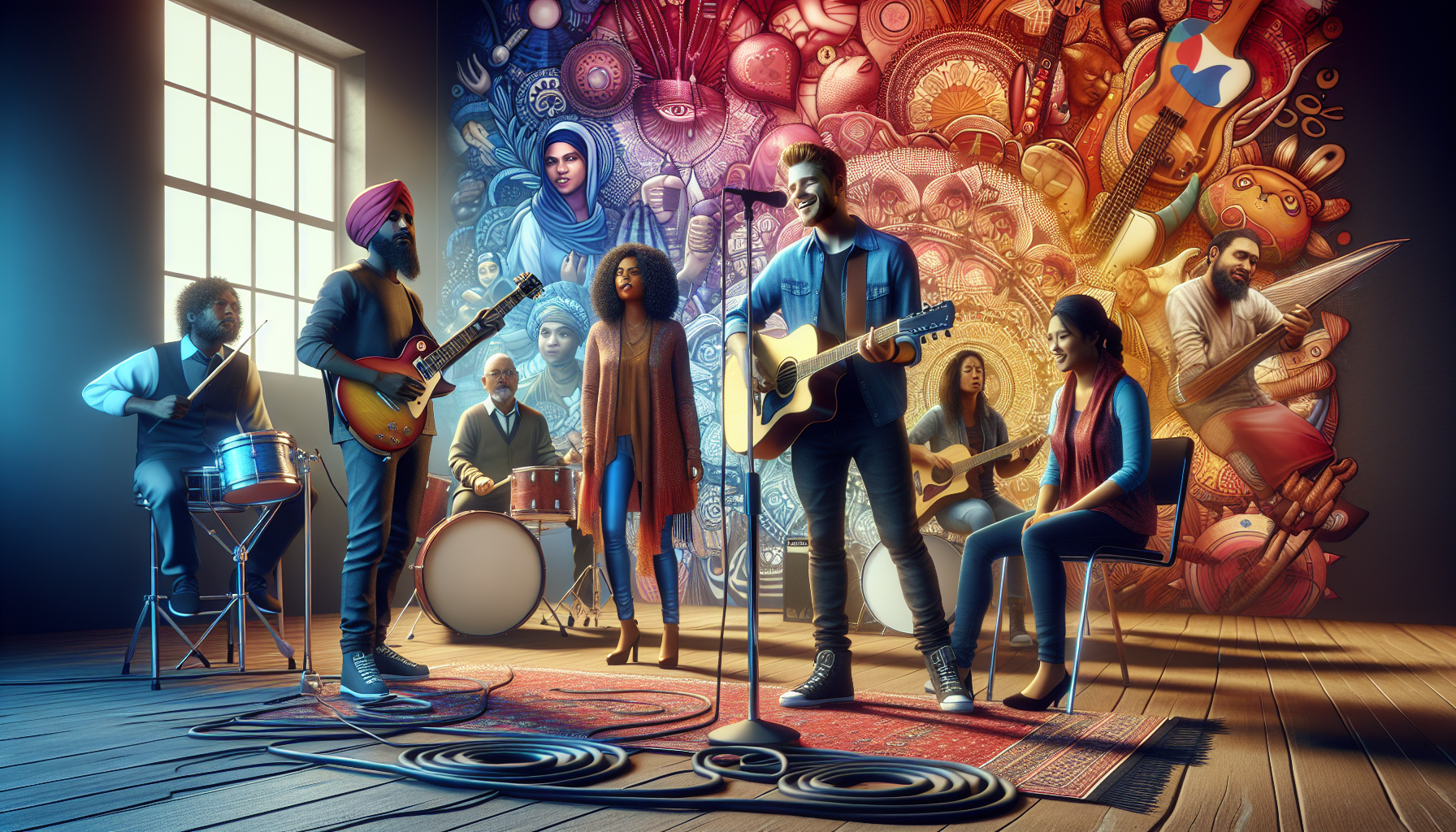Embracing a Multicultural Narrative
In a world where connectivity is at the forefront of societal advancement, the entertainment industry serves as a powerful medium for storytelling. It reflects the increasingly heterogeneous societies that consume its content. Cultural diversity in entertainment is pivotal for fostering a global community that is enlightened, inclusive, and vibrant, providing audiences with the opportunity to celebrate a multitude of perspectives.
Broadening Perspectives through Representation
When entertainment platforms depict a diverse array of cultural narratives and traditions, they provide a window into the lived experiences of different communities. Audiences can see life through a new lens, promoting empathy and understanding across cultural divides. For instance, a television show portraying an immigrant family’s traditions and struggles can dispel stereotypes by highlighting shared human experiences, such as love, ambition, and resilience.
In addition to challenging preconceptions, representation in entertainment often catalyzes social change. When marginalized groups see themselves reflected in movies, television shows, or music, it can validate their existence and experience in the broader cultural context. This visibility can lead to greater acceptance and a place that may have previously been denied at the societal table.
Enhancing Creativity and Innovation
Diversity in entertainment is not merely a matter of equitable representation but also a breeding ground for creativity and innovation. Creativity thrives under a mix of influences, ideas, and perspectives. When individuals from varied cultural backgrounds collaborate, they bring unique storytelling techniques, aesthetic sensibilities, and interpretative skills to the table. This rich tapestry of inputs often results in groundbreaking artistic expressions that might not have been realized in a homogenous creative environment.
Movies like “Black Panther” demonstrate how incorporating diverse cultures into mainstream entertainment can lead to commercial success and a fresh take on genre conventions. The film, infused with African cultural elements, resonated with audiences worldwide, transcending barriers and setting new standards for inclusivity and representation in the superhero genre.
Economic Benefits of Diversity in Entertainment
The business case for cultural diversity in the entertainment industry is compelling. A diverse lineup of content appeals to a broader audience base, which can lead to increased profits and market expansion. As demographics shift and minority populations grow, there is a burgeoning demand for content that reflects the diversity of the audience. Studios and networks that fail to adapt risk losing relevance and profitability.
Moreover, diverse casts and themes can attract new talent and investors drawn to multicultural projects’ creative potential and societal impact. This can foster a virtuous innovation, investment, and growth cycle that benefits the entire entertainment ecosystem.
The Role of Digital Media in Promoting Cultural Diversity
The advent of digital media and streaming platforms has played a crucial role in advancing cultural diversity in entertainment. With the barriers to entry significantly lowered, content creators worldwide can now showcase their work to a global audience. Streaming platforms like Netflix, Amazon Prime, and Disney+ have championed cultural diversity by investing in international content and making it accessible across borders.
The impact is evident in the popularity of shows like “Money Heist” from Spain, “Narcos” from Colombia, and “Sacred Games” from India, which have found enthusiastic audiences worldwide, highlighting the universal appeal of diverse storytelling.
Conclusion: The Road Ahead for Diverse Entertainment
The significance of cultural diversity in entertainment cannot be overstated. As the industry evolves, the ongoing commitment to diversity and inclusion will be paramount in crafting narratives that resonate with a global audience and reflect the rich tapestry of human experience. It is a matter of moral responsibility, artistic opportunity, and economic wisdom to invest in cultural diversity.
The future of entertainment lies in its ability to embrace and celebrate the diversity of cultures that constitute the audience it serves. Doing so can create a dynamic and inclusive space responsive to our world’s changing landscape, fostering a more empathetic and united global community.

